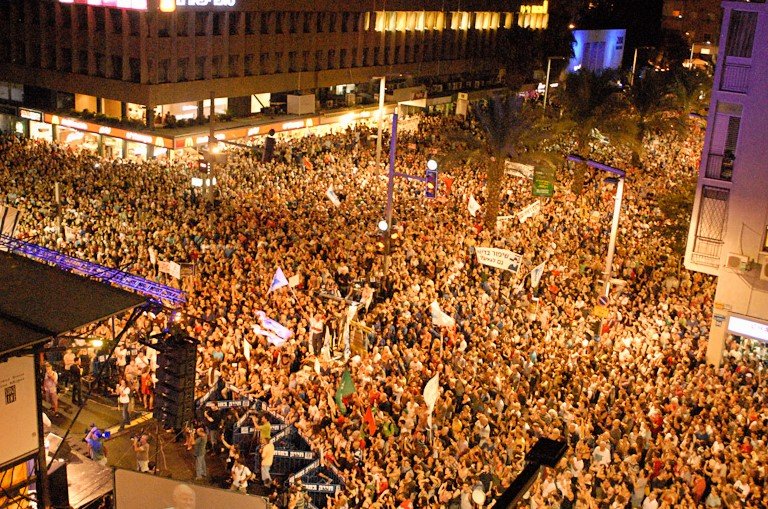Trust is more than just a word; it’s the cornerstone of a functioning democracy. In Israel, this trust is fractured, but it can be rebuilt—with honesty and a shared commitment to a common future.
Trust is a fragile thing. In personal relationships, it’s what keeps us close. In a democracy, it’s the invisible thread that ties everything together, keeping a society cohesive and functioning. Without it, marriages falter, friendships crumble—and countries fracture. Israel, like so many democracies around the world, is currently grappling with this issue. The protests in Habima Square in Tel Aviv, with people calling for the preservation of Israeli democracy and the release of hostages, are a testament to the growing sense of division and distrust in the country’s political landscape.
Trust, in its most basic form, means believing that those in power will act in the best interest of the people. But when that trust is broken—whether through actions that undermine democratic values or through the failure to deliver on promises—the fabric of democracy begins to unravel.
Trust Erosion: The Current Crisis
In recent years, trust in Israeli leadership has been steadily eroding. This erosion is not just due to political disagreements but also the perception that the government is not listening to its people. The protests across Israel, especially the ones that packed Habima Square, are a direct response to this perceived disconnect. Israelis are demanding not just political change, but a return to the fundamental values that have always been at the heart of their democracy.

The political divide in Israel today is stark. Some citizens feel that their voices are ignored, that their concerns are brushed aside by a leadership more interested in consolidating power than in serving the needs of the population. Others believe that the government’s actions are necessary to protect Israel’s security and sovereignty. The reality, however, is that both sides—despite their differences—must recognize that the foundation of any democracy is trust. Without it, even the most well-intentioned policies fall flat.
The Role of Honesty in Restoring Trust
Rebuilding trust in Israel’s democracy isn’t just about politics; it’s about honesty. Honesty in government, honesty in leadership, and, perhaps most importantly, honesty in the public discourse. It’s essential that Israeli leaders not only listen to the concerns of their citizens but also be transparent about the challenges they face and the decisions they make.
This means admitting when things aren’t going well and taking responsibility for past mistakes. It means resisting the temptation to deflect blame or resort to rhetoric that divides rather than unites. In Israel, as in any democracy, there will always be disagreements. But the key is to approach those disagreements with a commitment to honesty and a willingness to find common ground.
It’s important to recognize that trust isn’t something that can be restored overnight. It requires consistent effort, genuine dialogue, and the courage to make difficult decisions. But the first step is acknowledging that the foundation of any healthy democracy is not just the rule of law, but the trust between the government and its people.
Rebuilding Together: A Call for Unity
In Israel’s current climate of division, the challenge is not simply political—it’s deeply personal. The sense of disillusionment that many Israelis feel isn’t just about policies or laws; it’s about whether they still believe that the country they love is working for them. This disillusionment isn’t new, but it’s grown louder in recent months, fueled by tensions over security, governance, and economic inequality.
The truth is, Israel doesn’t need to agree on everything. No democracy does. But what it does need is to believe—again—that it’s all in this together. This shared belief is the glue that holds any democracy together. Without it, we risk descending into further polarization, where political allegiances matter more than common goals.
The protests in Tel Aviv show that Israelis are still passionate about their country’s future. They’re willing to take to the streets to demand change, to demand that their voices be heard. But this energy needs to be harnessed in a way that fosters unity rather than division. Instead of letting protests become fuel for deeper divides, they should be seen as a call for collective action—a reminder that democracy works best when it works for everyone.
Moving Forward: Building Trust, One Step at a Time
Rebuilding trust in Israel is no small task, but it is possible. It starts with honesty—from leaders who are willing to listen to their citizens and be transparent about the decisions they make. It’s about acknowledging the pain of those who feel left behind, and finding ways to bridge the gap between them and those who are in power. It’s about restoring the faith that Israel can be a place where democracy works for everyone.
In the end, the people of Israel must be willing to believe in each other again. The protests, while necessary and important, should not be seen as an indictment of Israeli democracy—they should be seen as an opportunity for all Israelis to come together, regardless of political persuasion, and rebuild the trust that forms the foundation of their democracy.
